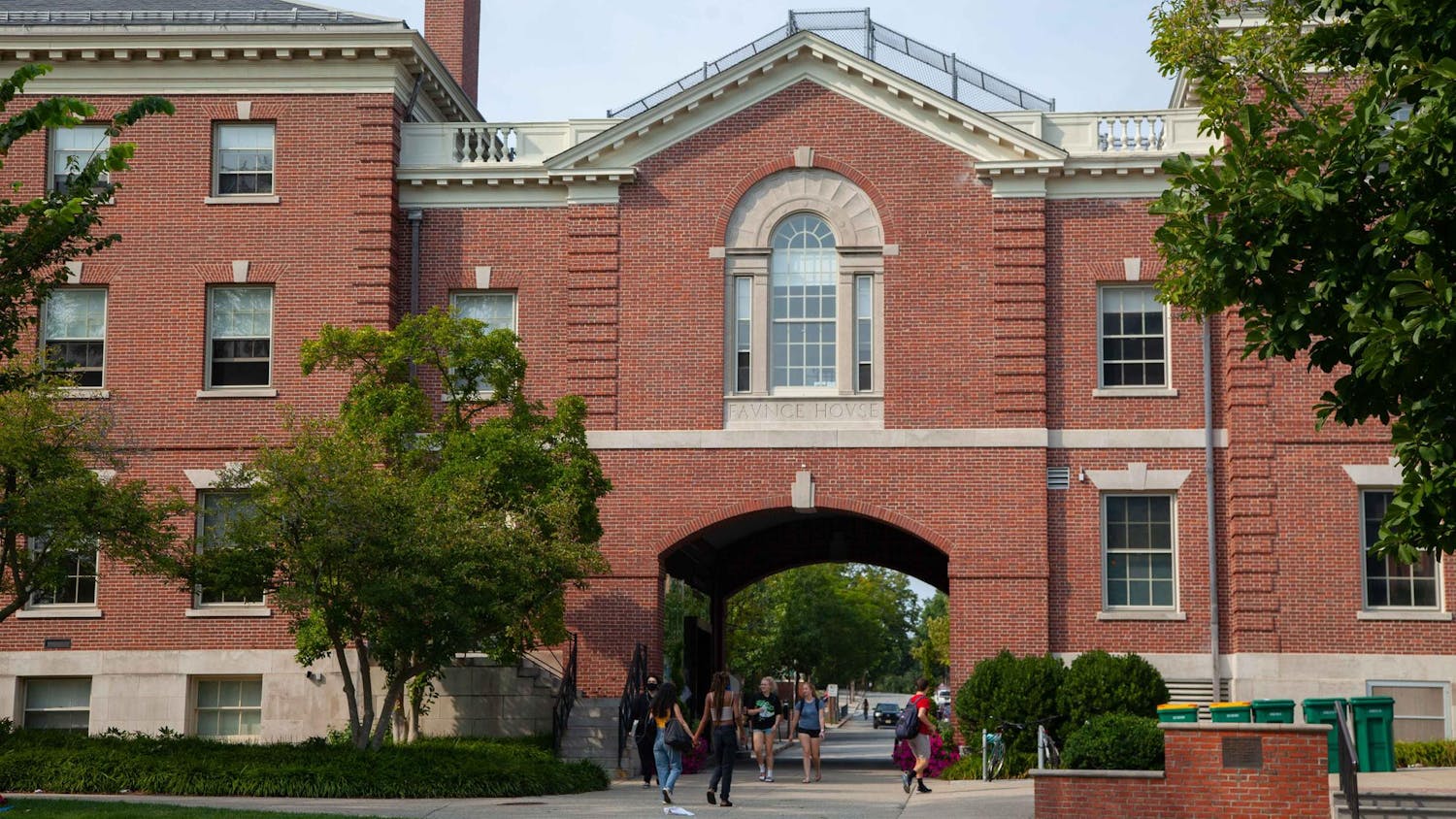William Brucker '04 spent the last few years perfecting a technique that relies on stories and analogies to teach young adults science. Brucker, whose speech shows the clear influence of the technique he developed, drew comparisons to an eggplant, a ship and a French film to explain his teaching philosophy.
In July 2011, Brucker, now an MD/PhD student, took this philosophy one step further and founded the Providence Alliance of Clinical Educators with a small team of writers, artists and marketers. PACE is a nonprofit that writes and distributes short vignettes to help high school students learn concepts that can be difficult to teach, like cellular respiration.
The group's initial goal was to produce a complete set of science vignettes in a few weeks, just in time for the school year to start, Brucker said. PACE emailed 21 vignettes complete with illustrations to several interested high schools in late September.
Kapil Mishra '12 and Carolina Veltri '13 worked on marketing and expansion for PACE since its founding.
"The biggest struggle initially was outreach and marketing and how to actually get this product out there," Mishra said.
Since then, PACE has expanded both by word-of-mouth and promotional pitches emailed directly to high school teachers across the country. Currently, PACE has distributed its products to schools in all 50 states and in Haiti. Brucker pointed to the difficulty of teaching cellular respiration as one reason for the nonprofit's rapid growth.
"Students hate (cellular respiration), and so if we make it about murder, death and chaos, then we'll have a chance of breaking into that market," Brucker said. "If we have one great story that's irresistible, then it's going to be used by every classroom."
One of the more popular vignettes is called "Drunkorexia," Brucker said. In the story, a young woman dies after starving herself for four days before drinking heavily in order to avoid gaining weight from high-calorie alcoholic drinks, causing her to experience alcohol-induced hyperglycemia. The story gives new meaning to abstract scientific concepts, Brucker said.
Diana Siliezar-Shields, science department chair at Barrington High School in Barrington, R.I., said her students like to create skits based on the readings. "Drunkorexia" was her favorite vignette, she added.
The story deals with topics "that they deal with and they think about in one way or another," Siliezar-Shields said, "so it generated some really good discussion from a biological perspective."
Shauna Evans, a biology teacher at Moore High School in Moore, Okla., said her students appreciate the format and content of the stories.
"You can teach them what the cell parts are, and you can teach them what the processes are, but to actually see them in the context of a real life situation … it gives meaning to what you're talking about," Evans said. "It kind of gave me a break from just trying to lecture to 14-year-olds, who don't necessarily want to hear it."
PACE recently began advertising to Brown students as it looks for help to sustain its rapid growth. Brucker said he hopes PACE will soon expand into the fields of chemistry and physics and bring the vignettes to many more schools across the country and around the world.
"If (Brown students) gave us a just little help, there's nothing to stop us from reaching every school in the English-speaking world," Brucker said, emphasizing the "potential (PACE's work) represents for change."
Sera Kim '15 recently joined PACE to help bridge the gap between scientists and the public. She plans to write a vignette about chemical equilibria by explaining how tooth decay happens in people with bulimia.
"I definitely don't want it to be a compromise of the concepts for it to be fun," Kim said, adding that she wants her story to include "accurate, real, good, legit science."
Brucker said he hopes that PACE could pave the way to "guerilla curriculum reform" to help science better engage students.
"Instead of saying that the education needs to be torn down and revamped and changed radically, we sort of take the side of the teachers," Brucker said. "They're on the front lines, and they're really good. So let's use some of the specialized knowledge we have and try to support their curriculum in tough to interest places."




